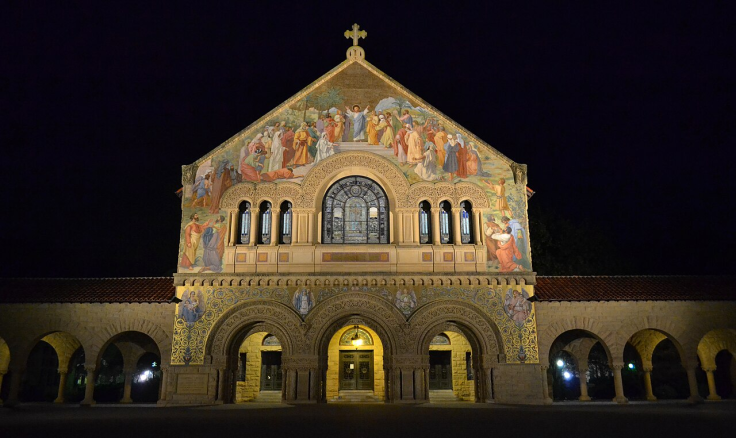Pro-Palestinian Protesters Face Felony Charges After Occupying Stanford President's Office
ByLast week, Stanford University became a focal point of intense controversy when 13 pro-Palestinian protesters occupied and defaced the president's office.
This bold action, aimed at pushing the university to divest from companies doing business with Israel, has resulted in significant legal and disciplinary repercussions for the involved students. The incident has sparked a heated debate on campus about the limits of protest, the responsibilities of educational institutions, and the broader issue of divestment from companies associated with controversial international policies.

The Incident: Occupation and Defacement
On Wednesday, the protesters stormed into the president's office in Building 10, barricading themselves inside. Their primary demand was for Stanford to divest from companies engaged with Israel, a stance aligned with the broader Boycott, Divestment, and Sanctions (BDS) movement, which seeks to pressure Israel over its policies towards Palestinians.
The protesters' actions went beyond a simple occupation. According to a Stanford spokesperson, they caused "extensive damage" both inside and outside the building. Photos shared by a reporter from The Stanford Daily revealed graffiti defacing a veterans' war memorial, with slogans such as "Our School Now Bitch" and "F--k Amerikkka" spray-painted prominently. The defacement of the war memorial, in particular, has drawn widespread condemnation from various campus groups and alumni, who view it as a disrespectful act against those who have served in the military.
Legal and Disciplinary Actions
Following their arrest, the 13 protesters were charged with felony burglary. The severity of the charges highlights the university's zero-tolerance stance towards such acts of vandalism and unauthorized occupation. Bail was set at $20,000 for each individual, reflecting the seriousness with which the authorities are treating the incident.
In addition to legal consequences, the protesters are facing strict disciplinary measures from the university. They have been suspended and banned from campus until the end of the semester on June 12. This measure has profound implications, especially for senior students who have been informed that they will not be allowed to graduate. This disciplinary action underscores the administration's commitment to maintaining order and protecting university property, even as it navigates the complex landscape of student activism and free speech.
The Broader Implications: Divestment and Free Speech
The incident at Stanford is part of a larger, ongoing debate about the role of universities in addressing international human rights issues and the extent to which student activism should influence institutional policies. The demand for divestment from companies doing business with Israel is not new and has been a contentious issue on many campuses across the United States. Supporters of the BDS movement argue that divestment is a moral imperative, necessary to pressure Israel into changing its policies towards Palestinians. Opponents, however, see it as an overly simplistic solution that unfairly targets Israel and undermines academic freedom and dialogue.
The actions of the protesters have also sparked a debate about the limits of free speech and protest on campus. While universities are traditionally spaces for robust debate and dissent, the line between legitimate protest and criminal behavior can sometimes become blurred. The occupation and defacement of the president's office raise critical questions about how far students can go in expressing their dissent before crossing into actions that warrant severe legal and disciplinary repercussions.
In response to the incident, various student groups and faculty members have expressed a range of opinions. Some have condemned the protesters' methods while supporting their underlying message, calling for the university to engage in a more meaningful dialogue about its investments. Others have criticized both the protest and the university's handling of it, arguing that the administration's response was too harsh and could stifle free expression on campus.
The recent pro-Palestinian protest at Stanford University highlights the ongoing tensions between student activism, institutional policies, and the boundaries of lawful protest. As the legal and disciplinary processes unfold, this incident will likely serve as a significant case study in balancing free speech and maintaining order within educational institutions. The broader implications for the university's investment policies and its approach to handling student dissent will continue to reverberate, potentially shaping future actions and policies at Stanford and beyond.
RELATED ARTICLE : College Leaders Impose Stricter Measures On Student Protests
© 2025 University Herald, All rights reserved. Do not reproduce without permission.








